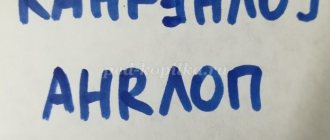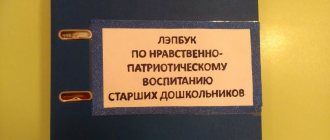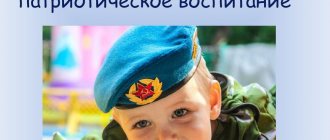Creation of an educational Web-quest as a means of improving the moral qualities of younger schoolchildren
The priority goal of Russian education at the present stage of development is to create conditions for students to receive a quality education based on the formation of key competencies, as well as a focus on independent activity of junior schoolchildren and personal responsibility for the results of their activities. Particularly valuable is the student’s ability to act in a specific life and social situation, showing independence, mobility, creativity, and competence.
A modern teacher in the context of the Federal State Educational Standard of Education is faced with the task of restructuring his activities in such a way as to move away from the usual explanation and provide students with the opportunity to independently, in a certain sequence, discover new knowledge not only in the classroom, but also in extracurricular activities, which should be meaningful and significant for every primary school student. The development paradigm is based on the formula: “what do I want to do, why am I doing it, how do I do it, how did I do it.”
Developments that implement new opportunities for informatization of education, allowing the development of the creative abilities of younger schoolchildren with the help of computer telecommunications in extracurricular activities, remain relevant. Students actively use this when working in the conditions of new educational technology.
Web-quest.
The problem of the widespread use of computer technologies in the field of education in the last decade has attracted increased interest in domestic pedagogical science. A great contribution to solving the problem of computer technology Web-quest learning was made by Russian and foreign scientists: O. I. Agapova, V. I. Gritsenko, G. R. Gromov, O. A. Krivosheev, G. Kleiman, S. Peipert, B Sendow, B. Hunter,
V. F. Sholokhovich etc.
Using a Web quest motivates primary education students to develop. Realizing this, teachers strive to actively use the capabilities of technology for educational purposes not only in the classroom, but also in extracurricular activities. Currently, the following types of extracurricular activities are available at the school: gaming, educational, leisure and entertainment, sports and recreation, tourism and local history. The organization of problem-value-based communication and social creativity during extracurricular activities deserves special attention. When developing educational programs, we consider types of extracurricular activities as a meaningful guideline that requires the use of innovative technologies to achieve an educational result, which is understood as “the direct spiritual and moral acquisition of a child through his participation in one or another type of activity.” Achieving an educational effect is also important - “the influence of one or another spiritual and moral acquisition on the process of development of the child’s personality” [3, p. 45].
The term “WebQuest” was first proposed in 1995 by Bernie Dodge, a professor of educational technology at the University of San Diego (USA), who developed innovative Internet applications for integration into the educational process when teaching various academic subjects at different levels of education.
Bernie Dodge, an expert in the field of educational technologies, gave the following definition to a Web quest: “a search activity (or search-oriented activity) in which all or part of the information that the learner operates on comes from Internet sources, optionally supplemented by video conference.” [5].
P.V. Sysoev calls an educational site, an independent research work of students on a specific topic with hyperlinks to various web pages, a Web-quest [4, p. 12].
According to the theory of J. Keller, when working on a Web quest, students go through a full cycle of motivation from attention to satisfaction [6]. The concept of "authentic learning" is viewed in the West as a pedagogical approach that allows students to explore, discuss and consciously build new concepts and relationships in the context of real-world problems, creating projects with practical relevance.
Currently, there is a need to develop a new model for conducting extracurricular activities with the active use of Web-quest technology. The relevance is associated with increasing schoolchildren’s motivation for self-learning, the formation of new competencies, the realization of creative potential, increasing personal self-esteem, and the development of personal qualities that are not in demand in the educational process. In addition, the use of technology contributes to the education and development of personal qualities, the formation of educational skills, as well as subject, meta-subject and personal results that meet the requirements of the information society, the disclosure of the abilities of each student and the support of children's giftedness and children with disabilities.
The experience of teachers shows that schoolchildren in extracurricular activities while working on an educational Web-quest find themselves in the center of a special space for individual and group work, which becomes a memorable event [2, p. 28]. A modern student is immersed in a different environment, lives through specific situations, gets involved in penetrating into the depths of the concept of educational activity, constructs his own text, and at the same time supplements it with new information. From the point of view of information activities, when working on an educational Web-quest, the student is required to: a variety of creative proposals, always accompanied by emotions, positive comprehension of new information. This requires skills in searching, analyzing information, and the ability to store, transmit, compare and synthesize new information, which turns into the student’s personal creative product.
It is fundamentally important for a primary school teacher that Web-quest technology teaches the child to independently determine a topic, formulate a problem, and competently build an argument. The child gets used to planning his own research activities, begins to think critically, solve complex problems, weigh alternative opinions, independently make thoughtful decisions, and take responsibility for their implementation [1, p. 274].
An educational Web-quest in extracurricular activities is understood as the creation by schoolchildren, in co-creation and collaboration with the teacher, of a research educational product with which the student works while performing one or another educational activity, namely: a website on the Internet; page on social networks; presentation; video; book trailer, etc. Development of an educational Web-quest provides an opportunity for in-depth study of a particular topic.
The specificity of the educational Web-quest convinces of its wide possibilities for extracurricular activities. In our opinion, technology provides three main components of productive activity: problem-solving, authenticity and interactivity, which are the leading factor in extracurricular activities [2, p. 46]. Educational Web quests allow students to receive information orally and in writing. In interactivity, acquired knowledge undergoes immediate testing, at the same time being enriched with new content. All this contributes to the achievement of educational effects and results in extracurricular activities.
We have developed and tested a version of a form for assessing the activities of participants in extracurricular activities in the context of an educational Web-quest.
Table 1
Criteria for assessing students' personal growth
| Criteria | Great | Fine | Satisfactorily |
| Ability to understand the task | Having an accurate understanding of the task. | Along with materials that are directly related to the topic, there are also materials that are not related to this topic. The number of sources is limited. | Only one source was used. The materials are not relevant to the topic. The information has not been analyzed or evaluated. |
| Ability to complete a task | There is a well-reasoned conclusion. All materials are directly related to the topic. Availability of correct citation. The information used is taken from reliable sources. | Not all sources are reliable. Some information is not precise enough or is not relevant to the topic. | The material was selected in random order. There is inaccuracy of information. Answers to questions are not presented in detailed form, but are monosyllabic. There is no analysis of information. |
| Ability to present work results | Information is presented clearly and logically; availability of information directly related to the topic. All information is well structured, accurate and edited. A certain position of the authors is visible, there is a criticality of the analysis and evaluation of the material, there is a certain position of the authors. | Own position and assessment of information are not expressed enough. The work is not copyrighted. | There is no logical structure of the material. There is no clear answer to the questions posed. |
| Having a creative approach | The work is individual and the point of view of the microgroup is clearly expressed. | No conclusions are drawn from the specific comparison. There is only one point of view on the emerging problem. | The work is simply copied information from provided sources. There is no point of view on this problem. The work is not related to the Web quest topic |
| Systematic and critical thinking | Searches, conducts critical analysis and synthesis of information, applies a systematic approach to solving assigned problems | Partially carries out searches, conducts critical analysis and synthesis of information, applies a systematic approach to solving assigned problems | Search searches, there is no critical analysis and synthesis of information |
| Development and implementation of projects | Together with the participants of the Web quest, he determines the range of tasks within the framework of the set goal and selects the optimal ways to solve them, based on current legal norms, available resources and limitations | Partially determines, together with the participants of the Web quest, the range of tasks within the framework of the set goal and selects the optimal ways to solve them, based on current legal norms, available resources and limitations | Difficulties in determining the formulation of problems, in choosing the optimal solution |
| Teamwork and Leadership | Able to carry out social interaction and realize his role in a team | Does not fully engage in social interaction and realize their role in the team | Unable to carry out social interaction and realize his role in the team |
| Communication | communicates verbally and in writing | Partially communicates verbally and in writing | Unable to communicate verbally and in writing |
| Self-organization and self-development (including health care) | Manages his time, builds and implements a trajectory of self-development based on the principles of education while working on a project | Manages your time, partially organizes and implement a trajectory of self-development based on the principles of education while working on the project | Unable to independently manage your time, build and implement a trajectory of self-development based on the principles of education while working on a project |
| Life safety | Creates and maintains a safe living environment for all team members while working online | Partially creates and maintains a safe living environment for all team members while working online | Unable to independently create and maintain safe living conditions for all team members while working online |
Experience shows that the most severe judges of work are the students themselves [3, p. 22]. Here it is important in the final stage to organize a constructive discussion, public presentation of completed work, open evaluation of one’s own work and the work of colleagues. This allows students to be correct in making comments, identify the most interesting findings in completed assignments, professional presentation, and formulate their own evaluation criteria.
Thus, the development of an educational Web-quest involves the integration of various types of extracurricular activities of students: cognitive, gaming, leisure and entertainment, problem-based communication, social creativity. A modern elementary school student develops personality traits in the context of increasingly complex activities, which can be done in the context of a specially designed educational Web-quest, in which the structure, its types, and evaluation criteria are carefully thought out. It should be noted that the developed ability to conduct a critical assessment of the work of classmates and one’s own creative activity is an indicator of educational results and effects.
Literature:
- Zhestkova E. A. Web quest technology in literary reading lessons in elementary school / E. A. Zhestkova, V. V. Kazakova // International Journal of Applied and Fundamental Research. 2015. No. 9 (part 4). pp.723–725.
- Let's get acquainted with educational Internet technology: web quest. https://ikt-ylka.blogspot.com/2009/02/5.html. Access date: 04/15/2015.
- Romantsova Yu. V. Web quest as a way to enhance students’ learning activities. — Access mode: https://festival.1september.ru/articles/513088. Access date: 04/15/2015.
- Sysoev P.V., Evstigneev M.N. Development of author’s educational Internet resources for a foreign language // Foreign languages at school. - 2009. - No. 2. - P. 8–16.
- Education World. Interview with B. Dozhd https://www. /a_issues/chat/chat015.shtml
- Keller, J. A Motivating Influence in the Field of Instructional Systems Design [Online]. Available: http:/ www.arcsmodel.com/pdf/Biographical Information.pdf.



